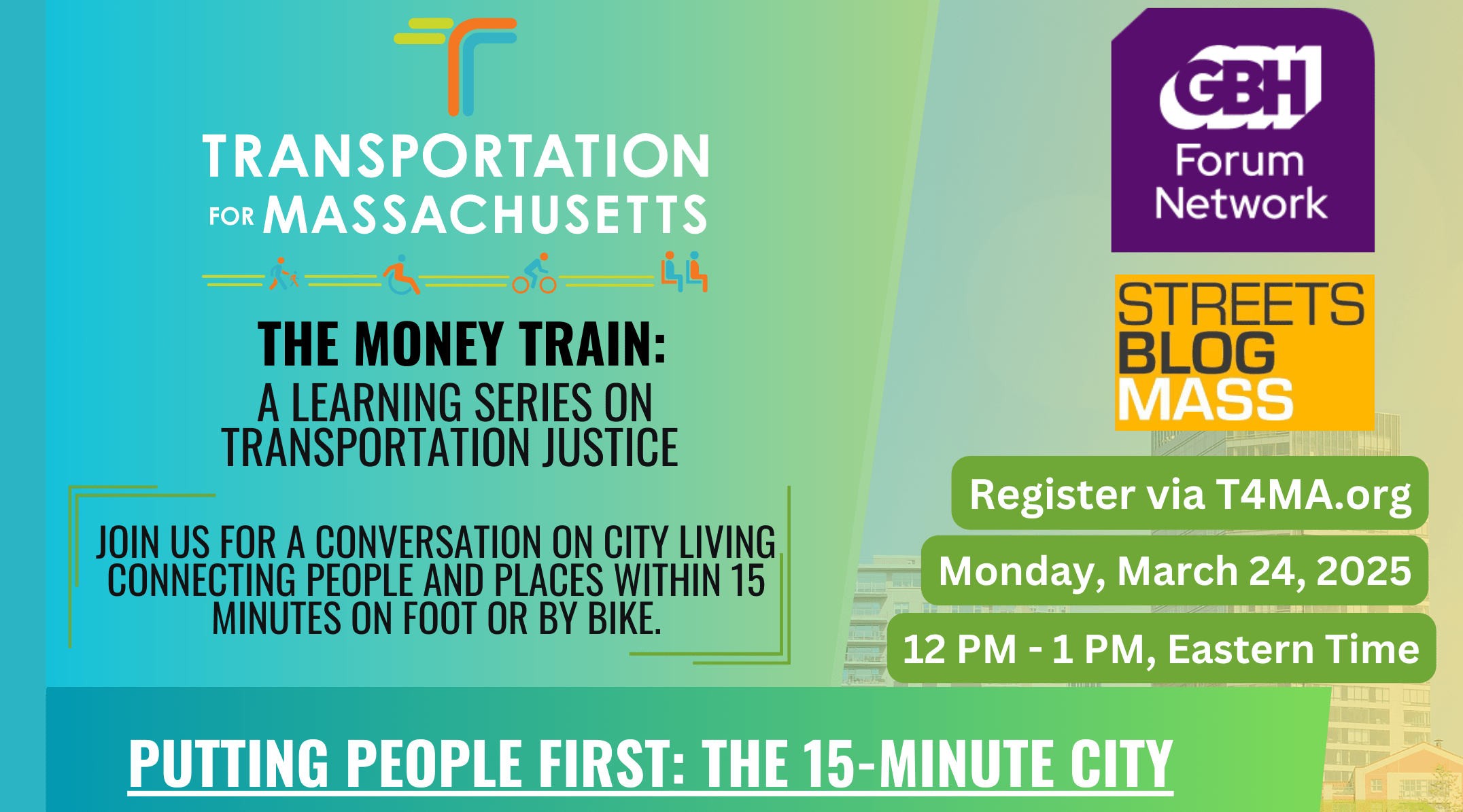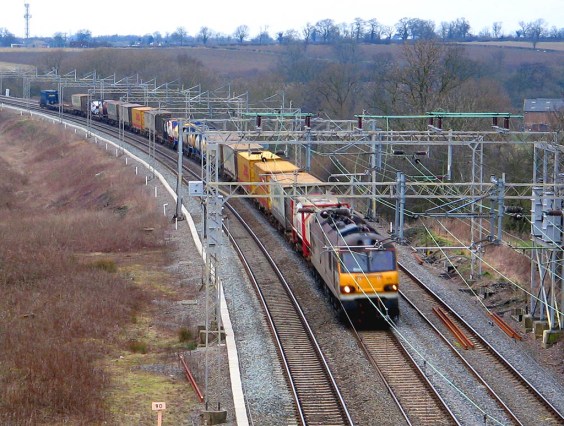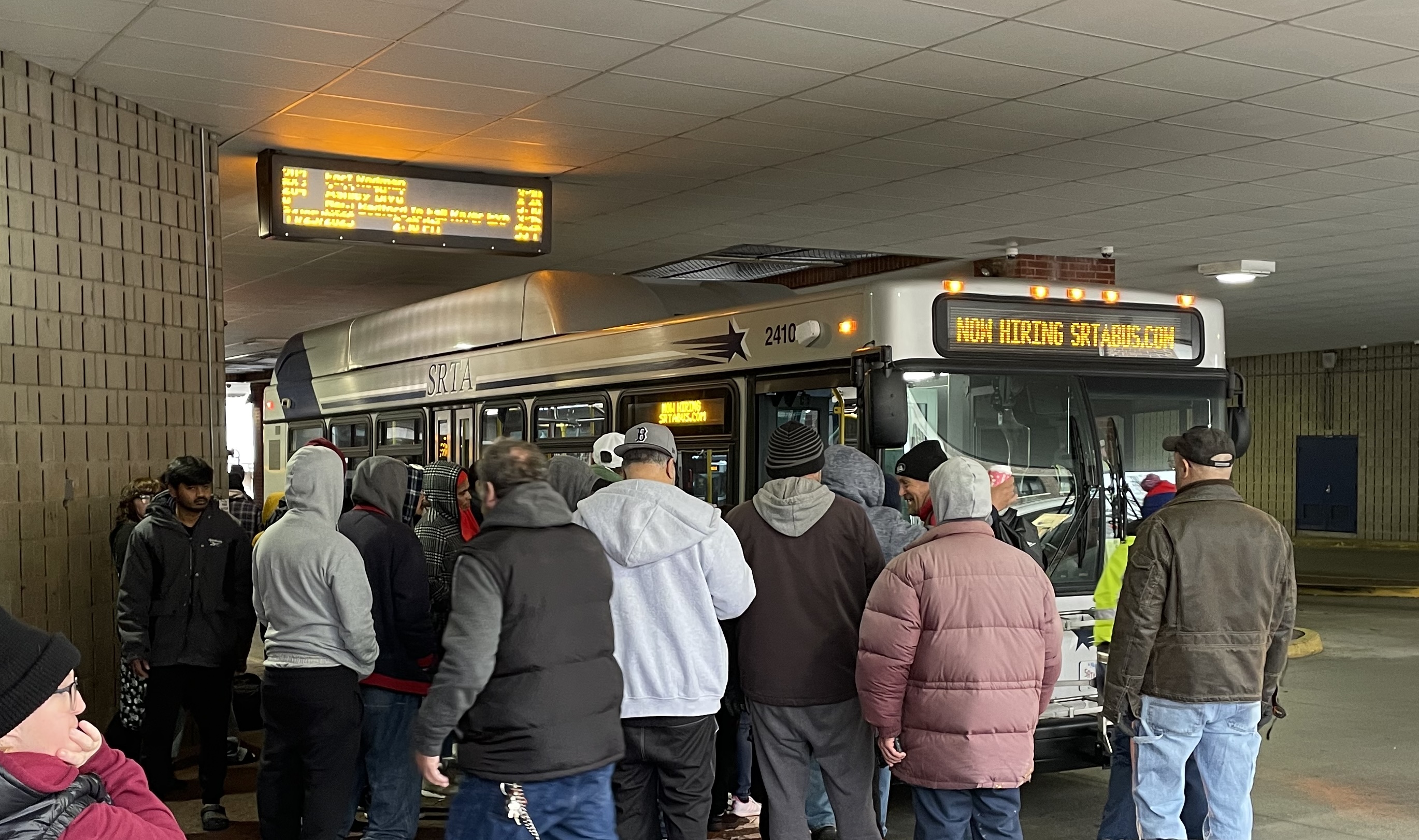On Monday, March 24th at noon, StreetsblogMASS editor Christian MilNeil will moderate a discussion on the "15-Minute City," an emerging planning principle that reduces transportation costs and congestion by∑ allowing more jobs and services to locate in the same neighborhoods where people live.
Last year, Boston drivers spent an average of 79 hours sitting in traffic. Those hours could have been spent with family, exercising, or having lunch with a friend. How different would our lives be if most of our errands were just a 15-minute walk away?
The 15-Minute City is an urban planning framework in which people live within 15 minutes of the essentials they need by walking or biking. Cities around the world - Barcelona, Paris, Singapore, and Bogota - have adopted this concept for sustainability and to improve general quality of life.
By contrast, 20th-century urban planning in the United States prioritized automobile use, which led to the destruction and splintering of city neighborhoods – especially neighborhoods where Black and brown-skinned people live.
What resulted was the unprecedented surge of suburbia, which designated for generations of Americans separate spaces for living, working, and recreating. Now more than ever, the US is confronted with a physical and political landscape demonstrating the importance of connection and community.
On Monday the 24th at noon, Transportation for Massachusetts and the GBH Forum Network will host an online conversation on Zoom about the 15-minute city concept and how it might apply in Massachusetts.
Join in the conversation by registering in advance here.

Carlos Moreno is a Franco-Colombian urban planner and professor at the IAE Paris Sorbonne, University of Paris 1 Pantheon-Sorbonne. Carlos pioneered the award-winning concept of the “15-Minute City” which has since become a global movement for city transformation.
Jim Aloisi is a lecturer on Urban Transportation Planning and Policy at MIT, and a former Transportation Secretary of Massachusetts.






